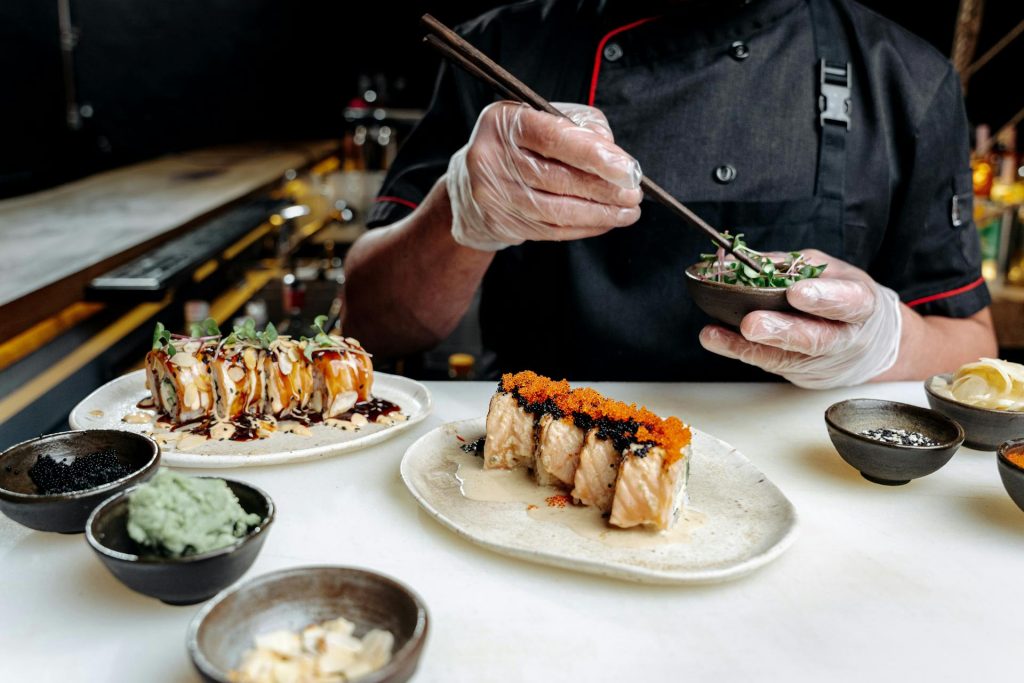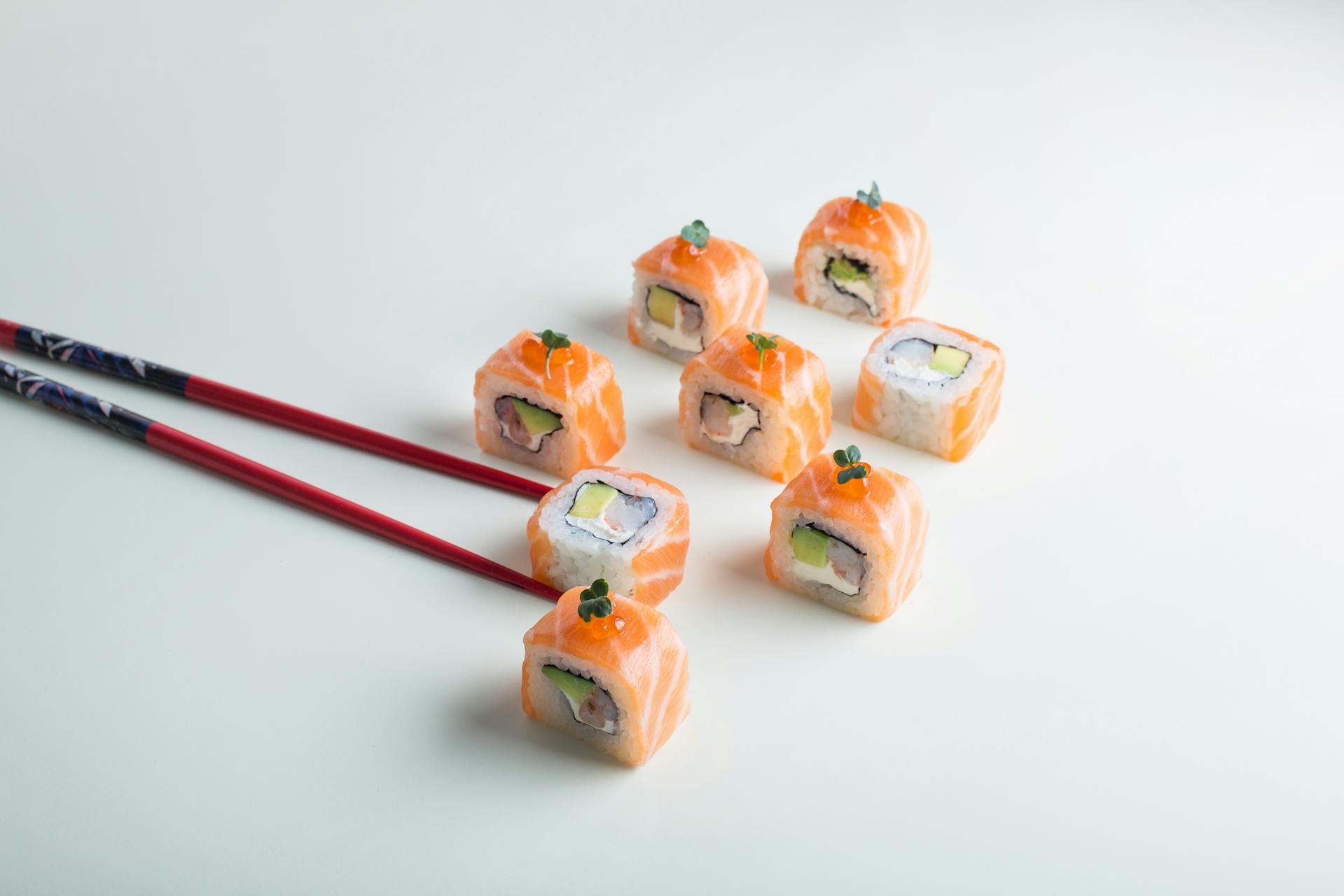Sushi Ai Lawsuit
The legal proceedings involving Sushi Ai have begun to unravel, revealing a series of potentially damaging allegations. These accusations, ranging from subpar sushi quality to unsanitary conditions, have left the once reputable establishment’s future hanging in the balance. This lawsuit not only affects Sushi Ai, but it also raises the broader issue of food safety and restaurant liabilities, consequently warranting further exploration into the potential ripple effects across the entire foodservice industry.
Background of Sushi Ai
Established in 2008, Sushi Ai has quickly risen to prominence in the culinary scene due to its authentic Japanese cuisine. Its inception was motivated by the desire to bring genuine sushi origins to the American public. The restaurant chain has persistently stayed ahead of the curve, adopting and integrating culinary trends while maintaining the traditional art of sushi making.
Sushi Ai’s success can be attributed to its commitment to the authenticity of Japanese cuisine. It has remained true to the conventional sushi origins, incorporating aspects of the Japanese artistry and precision in its food preparation. Its menu offers a diverse array of sushi dishes, from nigiri to maki rolls, showcasing the breadth and depth of traditional Japanese sushi.
Furthermore, Sushi Ai has consistently monitored culinary trends, staying relevant and appealing to the evolving tastes of its clientele. While honoring tradition, the restaurant has cleverly incorporated modern twists into its dishes, creating a fusion of old and new that resonates with a broad audience. This balance of tradition and innovation has cemented Sushi Ai’s position in the culinary landscape.
However, recent allegations have cast a shadow over the restaurant’s reputation, which will be discussed in the next subtopic: “The Allegations Revealed”.
The Allegations Unveiled
In a shocking turn of events, Sushi Ai, the prominent sushi chain, has come under scrutiny following a series of allegations. The accusers primarily highlight two areas of concern: sushi quality and customer satisfaction.
The allegations against Sushi Ai are manifold, yet they primarily revolve around the standard of sushi quality. A group of disgruntled customers alleges that the sushi served in several of Sushi Ai’s outlets falls short of the restaurant’s advertised quality. These complaints range from subpar ingredients to lack of freshness and poor presentation, all of which contribute to the perceived deterioration of sushi quality.
Moreover, the allegations extend beyond the quality of sushi, with many customers expressing their dissatisfaction with the overall dining experience. This dissatisfaction, they claim, is not only a result of the perceived low-quality sushi but also due to the restaurant’s lackluster customer service. Reports of delayed orders, unresponsive staff, and unsanitary conditions have been cited as contributing factors to the plummeting customer satisfaction rates.
These allegations, if proven true, could severely tarnish Sushi Ai’s reputation, a scenario that the sushi chain must address promptly and effectively to restore consumer confidence in its brand.
Legal Framework Involved
The legal framework within which the Sushi Ai lawsuit is embedded is multifaceted and warrants thorough scrutiny. We will first elucidate the legal principles that underpin the case, providing an extensive understanding of the lawsuit itself. Following this, we will explore the potential implications of this lawsuit for the operations and reputation of Sushi Ai, offering an analytical perspective on the case’s broader impacts.
Understanding the Lawsuit
Diving into the heart of the Sushi Ai lawsuit requires an extensive understanding of the legal framework involved. The case fundamentally centers around the intersectionality of sushi culture, legal ethics, consumer rights, and restaurant liability.
The sushi culture, traditionally characterized by its meticulousness and commitment to quality, is an integral part of this lawsuit. It’s this cultural expectation that sets the bar for what consumers can reasonably expect when dining at a sushi restaurant like Sushi Ai.
When it comes to legal ethics, the lawsuit brings into focus the responsibility of businesses to uphold certain standards. This involves providing safe, quality products and services, and honestly representing what they offer.
Consumer rights play a vital role in this case as well, particularly the right to safety and the right to be informed. In this situation, the lawsuit investigates whether Sushi Ai violated these rights, allegedly leading to customer harm.
Lastly, the restaurant liability aspect of the lawsuit explores the legal obligations of Sushi Ai in this scenario. A key question being asked is whether the restaurant failed in its duty of care towards its customers, and if this possible negligence resulted in injury or loss. In sum, to fully understand the Sushi Ai lawsuit one must consider these intertwining elements.
Involved Legal Principles
Upon examination of the legal principles involved in the Sushi Ai lawsuit, it becomes evident that a myriad of legal doctrines come into play. The crux of the matter appears to revolve around contract disputes and intellectual property.
The case presents interesting facets of contract law, primarily focusing on issues related to breach of contract, interpretation, and enforceability. The parties involved had an agreement which is now under dispute, raising significant questions on the terms of the contract and the obligations of the parties therein.
Simultaneously, the lawsuit underscores the importance of intellectual property rights in the field of gastronomy. The restaurant’s unique sushi recipes and techniques could be perceived as proprietary knowledge, protected under intellectual property laws. This brings to light the complex intersection of culinary art and law, where original creations are safeguarded as personal or corporate property.

Implications for Sushi Ai
Steering from the aforementioned legal principles, it is important to explore the potential implications for Sushi Ai within the involved legal framework. The lawsuit could influence the future of sushi technology and culinary innovation, pivotal elements of Sushi Ai’s business model.
If the lawsuit’s outcome is unfavorable for Sushi Ai, it may necessitate significant modifications in their sushi technology. This could potentially impact their ability to deliver the same quality of sushi and service, potentially affecting customer satisfaction and revenues. As a result, their position in the highly competitive culinary industry might be compromised.
Furthermore, the lawsuit could have implications for culinary innovation, particularly in the sushi industry. The legal precedents set by the lawsuit could define the boundaries of culinary creativity and technology application, potentially stifering innovation. Businesses might become cautious in their approach to introducing new technologies or innovations for fear of legal repercussions.
Response From Sushi Ai
Typically quick to respond, Sushi Ai has issued a statement in response to the recent lawsuit filed against them. The company’s public relations team crafted the statement, aiming to address the allegations directly and transparently. They have maintained their commitment to quality and customer service, despite the ongoing legal battle.
The statement seemed to be a part of a well-orchestrated public relations strategy. Sushi Ai’s approach was to communicate directly to their clientele, acknowledging the situation and assuring customers of their unwavering dedication to safety and hygiene standards. The company emphasized that they are taking the lawsuit seriously and that they are cooperating fully with the relevant authorities.
Customer reactions to the statement have been mixed. While some appreciated the brand’s quick and direct response, others expressed disappointment, their trust in the brand seemingly shaken. Sushi Ai, however, reiterated their commitment to address all customer concerns and to regain their trust.
Analyzing the response from Sushi Ai, it is clear that the company is working diligently to manage the crisis. Their objective appears to be not only to navigate the legal landscape but also to manage their brand image and customer relations effectively.
Impact on the Restaurant Industry
In light of the ongoing Sushi Ai lawsuit, profound implications can be seen rippling through the restaurant industry. The case has heightened awareness of food safety and ethical sourcing, leading to shifts in restaurant trends and consumer behavior. Customers now place increased importance on transparency, prompting industry regulations to adapt accordingly.
The competitive landscape has been greatly affected, as restaurants endeavor to demonstrate commitment to food safety and ethical sourcing. This has influenced dining experiences, with a trend towards greater transparency in sourcing and preparation processes. Further, this has spurred market adaptation, with restaurants investing in technology and training to meet these new standards.
Consumer behavior has also shifted, with an increased emphasis on food safety and ethical sourcing in their dining choices. This has led to a change in restaurant trends, with a rise in establishments offering detailed sourcing and safety information to their customers.
The Sushi Ai lawsuit has consequently catalyzed a move towards greater transparency in the industry, restructuring the competitive landscape and influencing market adaptation. As the industry navigates these changes, the focus remains on ensuring the best dining experiences while upholding the highest food safety standards.
Future Implications of the Case
Given the significant impact the Sushi Ai lawsuit has already made on the restaurant industry, it’s not surprising that this case will continue to shape the future of dining in profound ways. The case consequences are manifold and their ripple effects could fundamentally alter industry standards.
Firstly, it is likely that restaurants will heighten their vigilance regarding food safety and hygiene practices. This would be a direct response to the allegations of negligence and unhygienic practices made against Sushi Ai. Enhanced scrutiny could usher in a new era of strict food safety protocols, leading to healthier dining experiences for customers.
Secondly, the lawsuit could potentially influence legal frameworks surrounding the hospitality industry. Policymakers might review existing laws and regulations to guarantee they adequately protect consumers and employees alike. This could result in stricter compliance requirements for restaurants, which can then lead to higher standards across the industry.
Frequently Asked Questions
What Other Lawsuits Have Been Filed Against Sushi Ai in the Past?
In an analysis of previous allegations, it appears that no other lawsuits, according to available records and customer testimonials, have been filed against Sushi Ai, making the current case an isolated incident.
Are There Similar Lawsuits Against Other Sushi Restaurants?
Yes, similar lawsuits have been lodged against other sushi restaurants, shedding light on an industry-wide issue. These controversies often stem from consumer protection issues such as food safety violations and labor law infringements.
How Does This Lawsuit Affect the Customers of Sushi Ai?
The lawsuit potentially heightens customer concerns regarding business practices and food safety. Legal implications may lead to increased scrutiny and operational changes, potentially affecting the overall customer experience at the restaurant in question.
What Is the Expected Timeframe for the Lawsuit’s Resolution?
The legal proceedings timeline is typically unpredictable, with lawsuit resolution expectations often extending over several months or even years. A definitive timeframe is challenging to ascertain due to various factors impacting the litigation process.
Are There Safety Measures Being Implemented by Sushi Ai After the Lawsuit?
In response to recent issues, Sushi Ai has been proactive in implementing rigorous safety protocols to guarantee customer wellbeing and regain trust. It highlights the company’s commitment to high standards despite ongoing legal proceedings.






